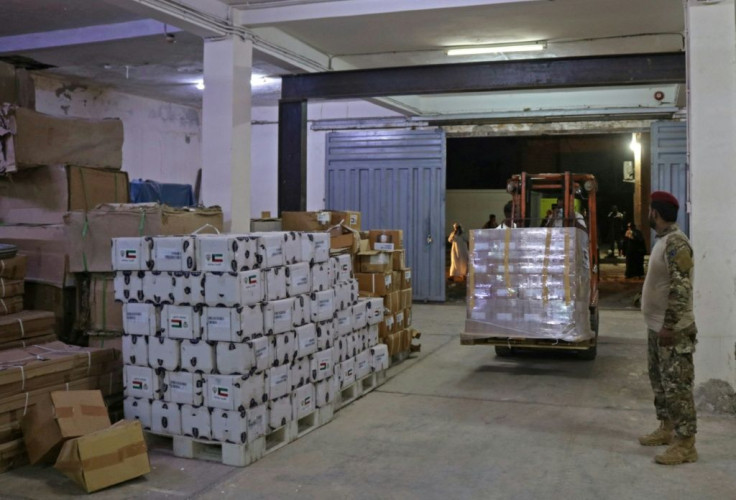Saudi Seeks To Raise $2.3 Bn In Yemen Donor Conference

Saudi Arabia seeks to raise $2.3 billion from an emergency donor conference Tuesday to support war-battered Yemen as it faces a coronavirus catastrophe in the sixth year of the kingdom's military intervention.
The virtual conference, which Riyadh is co-hosting with the United Nations, comes as aid groups warn that the fast-spreading virus could wreak havoc after years of war and amid crippling funding shortages.
"A total of $2.3 billion is being sought to cover emergency requirements in Yemen across multiple humanitarian sectors, including medical, food and shelter assistance," a Saudi government statement said.
Britain, a leading arms supplier to Saudi Arabia, stepped in Tuesday with a new aid package for Yemen worth ?160 million ($200 million).
"This targeted UK aid package will mean the difference between life and death for thousands of Yemenis who now also face the threat of coronavirus," Foreign Secretary Dominic Raab said in a statement.
"Our support will help ensure families can feed themselves and access clean water and medical care," he said.
Britain's International Development Secretary Anne-Marie Trevelyan said the funds aimed to provide support to at least 300,000 vulnerable people each month.
UN Secretary General Antonio Guterres, Saudi Foreign Minister Faisal bin Farhan as well as Mark Lowcock, UN under-secretary general for humanitarian affairs, were to take part in the aid conference.
Lowcock has flagged a funding requirement of $2.4 billion for Yemen by the end of the year, including $180 million to combat the COVID-19 pandemic.
Yemen is already gripped by what the UN calls the world's worst humanitarian crisis.
Saudi Arabia, which leads a military intervention against Iran-aligned Huthi rebels, counts itself as a top donor to Yemen, having contributed billions of dollars in aid.
But the Saudi-led coalition is also widely blamed for civilian casualties in bombing raids that campaigners say have pushed the country deeper into crisis.
A rebel spokesman dismissed the Saudi-led conference as a "silly attempt to (gloss over) their crimes", according to the Huthi-run Al-Masirah television.
The UN's Jens Laerke has warned that aid agencies are heading towards a "fiscal cliff" due to a lack of funding that threatens to shut down more than 30 key UN programmes in the coming weeks.
"We are urging the donors to pledge generously," said Laerke, a spokesman with the UN's humanitarian agency OCHA.
"Those who have given an indication of pledges (are urged) to actually pay early because the operation in Yemen is severely, severely underfunded."
Top officials from other UN agencies in Yemen have also appealed for urgent international support.
"We are increasingly alarmed about the situation in Yemen," officials from UNICEF, the World Food Programme and the World Health Organization said in a joint statement.
"We are running out of time," they said.
International medical charity Doctors Without Borders (MSF) has warned that Yemen faces a "catastrophe" from the pandemic.
Its fragile healthcare system has been blighted by years of conflict that has driven millions from their homes.
The UN says COVID-19 has likely already spread throughout most of Yemen, while the Yemeni government has officially recorded only a few hundred cases.
"COVID-19 has created new needs there, but (it) is just the latest challenge in an already deteriorating situation," said Abdullah al-Rabeeah, supervisor general of Saudi Arabia's King Salman Humanitarian Aid and Relief Centre.
"Yemen needs a lot of help, not least because of its weak health system."
The conflict between Yemeni government forces and the Huthis escalated in March 2015 when the Saudi-led coalition intervened against the rebels after they overran much of the country.
The war has left tens of thousands dead, most of them civilians, and the UN says around 24 million Yemenis -- more than two thirds of the population -- rely on some form of aid.
Fighting between the Saudi-backed forces and the rebels has continued despite repeated UN calls for a ceasefire as part of global efforts to combat coronavirus.
Further muddying the waters are tensions between two anti-Huthi allies -- the Yemeni government and southern separatists, which declared self-rule in southern Yemen on April 26.
© Copyright AFP {{Year}}. All rights reserved.





















